Timmons: America’s Success and Leadership Depend on a Strong, Competitive Manufacturing Industry
Washington, D.C. – National Association of Manufacturers President and CEO Jay Timmons released the following statement in response to President Biden’s 2023 State of the Union address:
“President Biden rightly celebrated the significant growth and job creation that manufacturers have achieved in these past two years. Indeed, more manufacturing jobs have been created in the first two years of the Biden administration than at any point since the Reagan administration. Like his recent predecessors, he recognizes manufacturing’s vital role in our economy and our country. America’s success and leadership depend on a strong, competitive manufacturing industry.
“The President should be commended for the historic, bipartisan accomplishments of the past two years—including the infrastructure law and the CHIPS and Science Act. These measures are already making life better and spurring new manufacturing jobs. We agree with President Biden that there is now an urgent need to build on that progress by tackling immigration reform in a smart, bipartisan way. There are millions of people ready to work in the U.S., and manufacturers have hundreds of thousands of unfilled jobs. Not only is the broken immigration system creating a border crisis, but it is also standing in the way of a stronger economy for every American.
“However, the President misses the mark in not recognizing that the historic tax reforms of 2017 and the previous administration’s efforts to promote regulatory certainty helped lay the foundation for the recent success in creating jobs, increasing investment and raising wages. Instead of the Biden administration’s misguided suggestions for restrictions on pharmaceutical innovation and for destructive tax increases, Congress should immediately reinstate critical tax deductions for the costs of research, machinery purchases and key business investments. Restoring these tools is essential to keep up the pace of manufacturing job creation and to out-innovate and outcompete China. And to truly unleash manufacturing investment, fully realize the potential of the infrastructure law and achieve energy security in America, we need a smarter, balanced approach to regulations and significant permitting reform so that projects don’t languish for years in a bureaucratic mess just waiting for government approvals. After all, manufacturers are already making great strides in reducing emissions. Now is not the time to add top-down air regulations that will cost us jobs and snarl supply chains.
“The State of the Union address is one of the sacred traditions of our democracy. And as we approach the one-year mark of Russia’s war on Ukraine, we are reminded just how precious those traditions and our institutions are. Democracy is the foundation of the values that keep our industry strong and have made America exceptional—free enterprise, competitiveness, individual liberty and equal opportunity. And that is why manufacturers stand firm in our belief that democracy must be respected, protected and defended at home and abroad.”
Background: The NAM’s “Competing to Win” policy agenda for manufacturing competitiveness can be found here. Its in-depth proposal for immigration reform, “A Way Forward,” is available here. In the NAM’s most recent Manufacturers’ Outlook Survey, two-thirds of manufacturers said that immigration reform should be a priority for the 118th Congress.
-NAM-
The National Association of Manufacturers is the largest manufacturing association in the United States, representing small and large manufacturers in every industrial sector and in all 50 states. Manufacturing employs nearly 13 million men and women, contributes $2.81 trillion to the U.S. economy annually and accounts for 55% of private-sector research and development. The NAM is the powerful voice of the manufacturing community and the leading advocate for a policy agenda that helps manufacturers compete in the global economy and create jobs across the United States. For more information about the NAM or to follow us on Twitter and Facebook, please visit www.nam.org.
Ultragenyx Fights for Cures Amid Rising R&D Costs

About 30 million people in the United States have a rare disease, according to the National Institutes of Health, which equates to about one in every 10 individuals. Approximately 95% of these rare diseases have no treatment at all—and Ultragenyx, a biopharmaceutical company focused on new and effective therapies for patients with rare and ultra-rare diseases, is working to change that.
- “In the aggregate, rare is not that rare,” said Ultragenyx Executive Director of Public Policy and Public Affairs Lisa Kahlman. “Half of those 30 million people are children. It’s a huge unmet medical need.”
Founded in 2010, Ultragenyx has four commercial products, with about 20 more in pre-clinical and clinical development. But a new change in tax policy poses a very real threat to Ultragenyx’s ability to develop as many treatments for rare diseases as possible.
The issue: Until a year ago, businesses could deduct 100% of their R&D expenses in the same year they incurred the expenses. Starting in 2022, however, a tax policy change requires businesses to spread their R&D deductions out over a period of five years, making it more expensive to invest in growth and innovation. For research-heavy companies like Ultragenyx, that change could divert funds intended for the development of therapies toward tax obligations.
- “Ultragenyx is different,” said Kahlman. “There are a lot of companies that do some work in rare diseases, but usually that’s only a fraction of what they do. We’re exclusively built to focus on rare and ultra-rare diseases, and that requires research.”
The impact: As a small, largely precommercial start-up company that focuses on research, Ultragenyx spends about 70% of its total operating expenses on R&D. In 2021, Ultragenyx spent approximately $497 million on R&D—nearly $150 million more than it earned in revenue.
- If the tax change stands, the company’s financial statement losses, which approximate decreases in the company’s cash reserves, will be adjusted for tax purposes to reflect significant taxable income, resulting in very large tax liabilities over a short period of years.
- This will occur during late stages of the company’s development programs just when costs escalate quickly. Altogether, money will be diverted to taxes and away from critical development programs at precisely the wrong time.
The human cost: If Ultragenyx and other research-heavy biotech companies that are focused on developing treatments for rare diseases must divert funds away from development and toward covering tax obligations, patients living with rare diseases will have even more limited options.
The bottom line: “The therapies we’re developing are really transformational, but in some cases, there might be only about 200 patients in the developed world with one of these diseases—so if we don’t have the money for R&D, there won’t be any incentive for anyone else to develop treatments,” said Kahlman. “For these patients, there is no alternative.”
Our move: At the NAM, we’re pushing Congress to reverse this change and allow manufacturers to invest in jobs, communities and innovation. Learn more and take action at www.nam.org/protect-innovation.
NAM to FTC: Noncompete Rule Would Harm Manufacturers
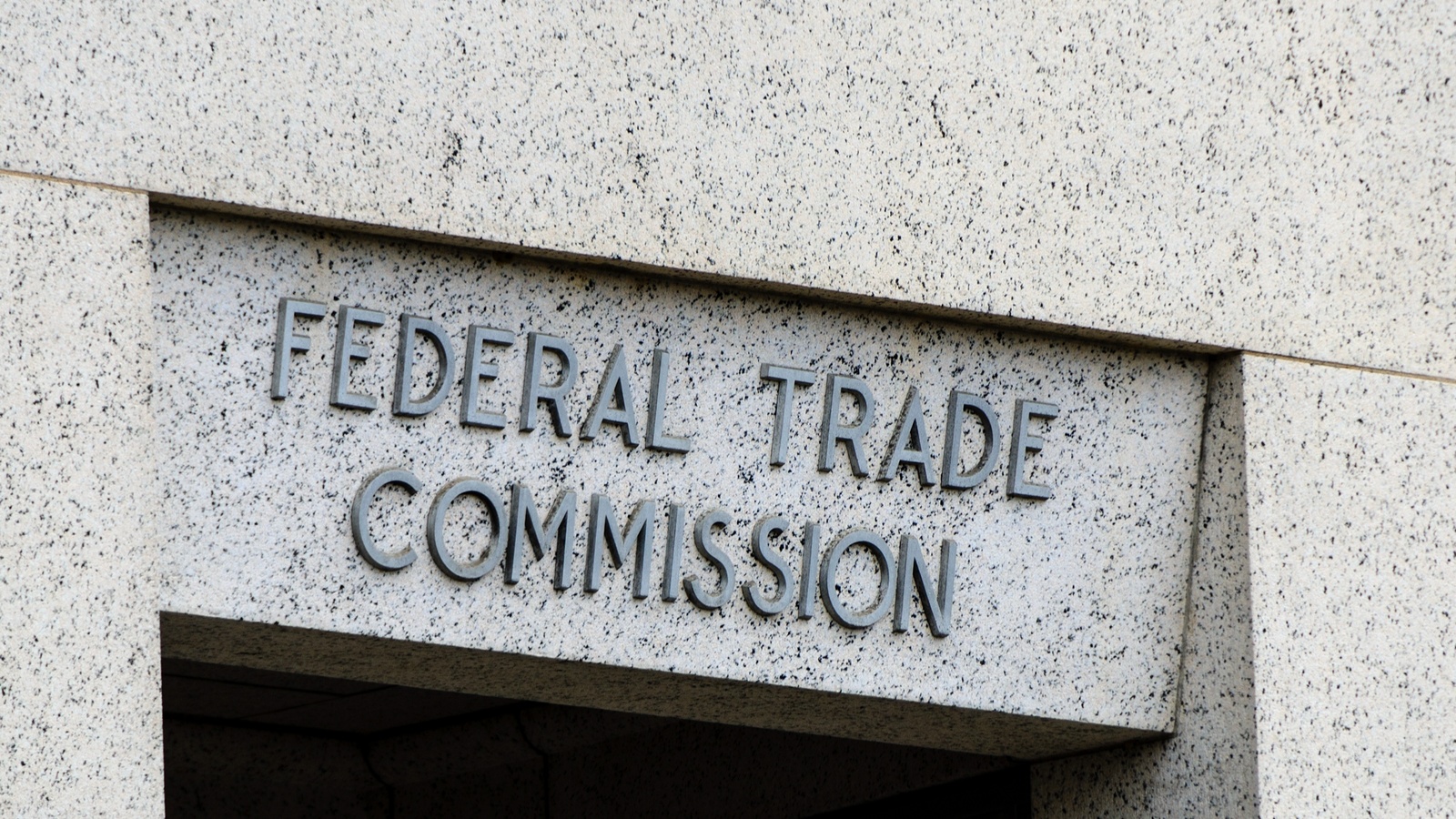
The NAM is urging the Federal Trade Commission to extend the comment period on its recently proposed rule to ban noncompete agreements in the workplace, citing the rule’s broad economic impact and significant legal implications.
The background: On Jan. 5, the FTC proposed a rule that would prohibit employers from imposing noncompete agreements on workers, calling such clauses “an unfair method of competition” and saying they prevent the forming of new businesses and result in lower wages for all workers.
What the NAM is doing: The NAM opposes the proposed change, and the association joined a coalition of other business groups this week requesting that the public comment period, which runs through March 20, be extended by 60 days. The reason: the proposal would have far-reaching legal consequences for manufacturers, including risks to intellectual property.
- “A sufficient comment period is needed to ensure the regulated community can fully assess [the rule’s] effects,” the coalition told FTC Secretary April Tabor. “Moreover, there are significant legal questions that must be addressed by commenters.”
- “Among the issues raised by the FTC action is whether the Commission has the legal authority to issue such a rulemaking, the rule’s potential preemption of the numerous state laws and regulations on this issue, and how such preemption will alter the regulated community’s legal obligations.”
Working for manufacturers: The NAM is exploring all possible avenues, including congressional oversight and litigation, to mitigate the impacts of the proposed rule. Litigation is contingent on financial support from NAM members, as all of the NAM’s activities in the courts are funded outside of member dues.
NAM to Congress: Reverse Course on Harmful Tax Changes
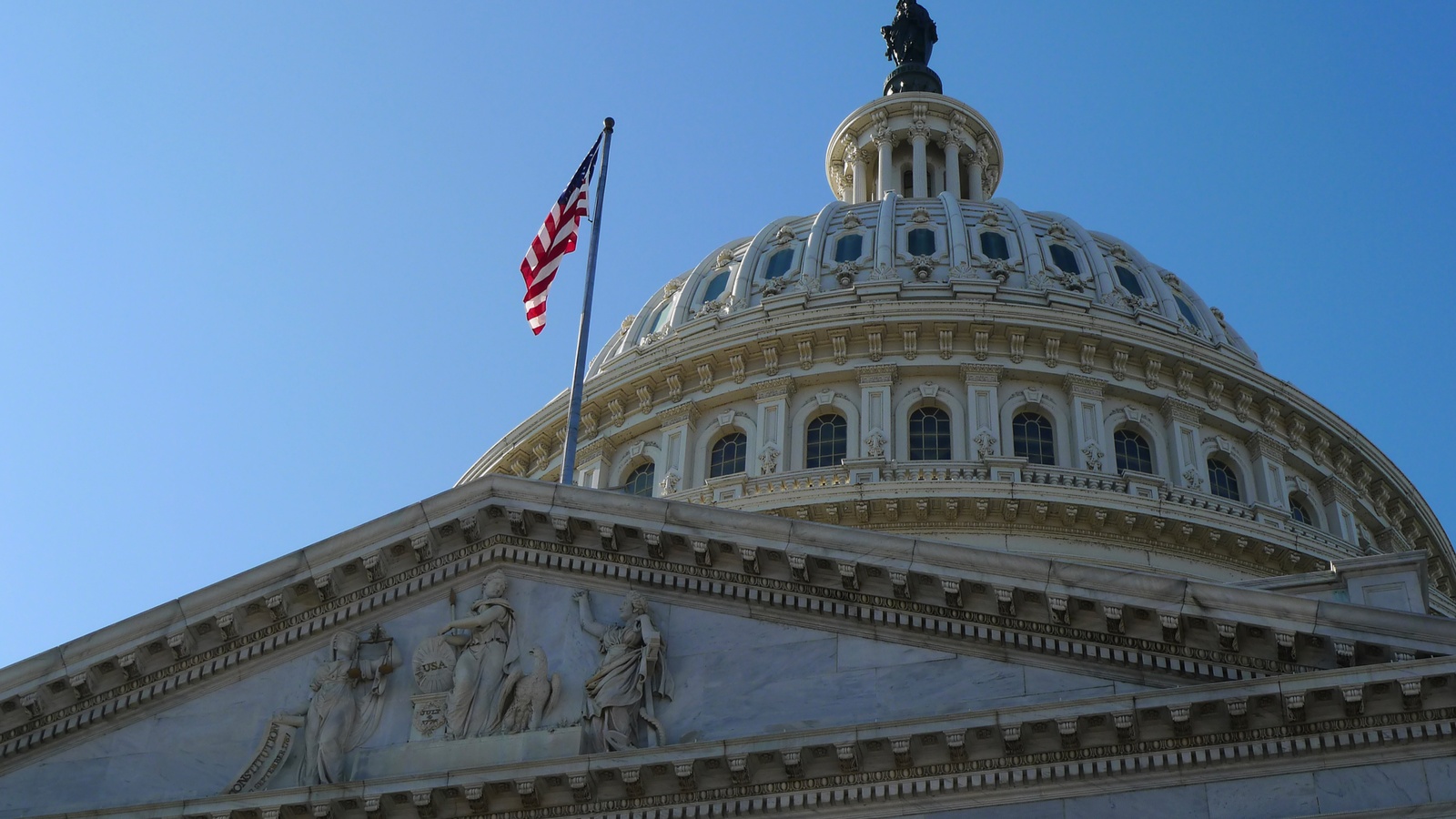
Recent tax law changes that increase the costs of research, machinery purchases and key business investments will harm manufacturers “at a time when 62% of manufacturing leaders already expect a recession in 2023,” the NAM told congressional leaders Monday.
What’s going on: Beginning in 2022, businesses that had for decades been allowed to immediately deduct research and development expenses had to begin amortizing these costs over years, making innovation more expensive.
Why it’s important: The change creates a competitive disadvantage for manufacturers in the U.S., as “China, which has made no secret of its ambition to become the world leader in advanced manufacturing, currently provides a 200% deduction for R&D expenses for manufacturers,” NAM Senior Vice President of Policy and Government Relations Aric Newhouse told the Senate Finance Committee and the House Ways and Means Committee.
What can be done: Congress should reverse course to avoid harming manufacturers, Newhouse said. Here’s what lawmakers should do:
- Reverse the R&D amortization provision: Policymakers should allow manufacturers to go back to being able to deduct 100% of their R&D expenses in the same year in which they are incurred.
- Protect interest deductibility: Congress must reverse the new, stricter limit on interest deductibility (the earnings before interest and tax, or EBIT, standard) and return to the “standard in place prior to 2022, which was based on earnings before interest, tax, depreciation and amortization.”
- Return to full expensing: Lawmakers should go back to allowing businesses to take 100% deductions for equipment and machinery purchases in the tax year of purchase.
The last word: By making these changes, Newhouse said, “Congress can help ensure that manufacturers, especially small manufacturers, can continue to invest in their operations, their workers and America’s future.”
Timmons: Debt Ceiling Uncertainty Will Derail Manufacturing Growth
Manufacturers Call on Administration and Congress to Act Swiftly
Washington, D.C. – National Association of Manufacturers President and CEO Jay Timmons released the following statement regarding negotiations to raise the debt ceiling:
“It is imperative that Congress and the administration reach a resolution to the debt limit issue as swiftly as possible. Waiting to act until extraordinary measures are exhausted constitutes dangerous brinkmanship that would inject uncertainty into the global economy and increase the risk of a default that would derail manufacturing growth in America, tank markets and put jobs at risk.
“We did not become the greatest nation in the world by shirking our responsibilities. Manufacturers have been working overtime to rebuild our economy, strengthening supply chains, creating jobs at record rates and helping defend against threats from around the world. All of those achievements will be erased if the United States does not find a path forward on the debt limit and fiscal responsibility. Let’s rise above this challenge so that manufacturers can do what we do best: improve lives and livelihoods here and around the world.”
-NAM-
The National Association of Manufacturers is the largest manufacturing association in the United States, representing small and large manufacturers in every industrial sector and in all 50 states. Manufacturing employs more than 12.9 million men and women, contributes $2.81 trillion to the U.S. economy annually and accounts for 55% of private-sector research and development. The NAM is the powerful voice of the manufacturing community and the leading advocate for a policy agenda that helps manufacturers compete in the global economy and create jobs across the United States. For more information about the NAM or to follow us on Twitter and Facebook, please visit www.nam.org.
Melissa Hockstad to Chair NAM’s Council of Manufacturing Associations
2023 Association Executive of the Year Selected to Head Premier Industry Leadership Group
Washington, D.C. – The National Association of Manufacturers’ Council of Manufacturing Associations announced new 2023 leadership at the CMA 2023 Winter Leadership Conference. Melissa Hockstad, president and CEO of the American Cleaning Institute and the 2023 Association Executive of the Year as named by Association TRENDS and CEO Update, will serve as chair of the CMA Board of Advisers. Jennifer Abril, president and CEO of the Society of Chemical Manufacturers & Affiliates (SOCMA), will serve as vice chair. Made up of more than 200 industry-specific manufacturing associations representing 130,000 companies worldwide, the CMA creates powerful partnerships across the industry and ensures manufacturers have the strongest possible voice.
“The Council of Manufacturing Associations is a positive force for collective advocacy, industry thought leadership and association operations. We strive to be the group industry associations choose,” said Hockstad. “The country depends on our leadership, and I look forward to collaborating with the manufacturing association community to strengthen our voice and advance our competitiveness agenda in this new year.”
“Melissa and Jennifer are experienced and accomplished leaders who are well-positioned to continue the cooperative spirit that has made the CMA such an influential organization for our industry. To add to her long list of achievements, Melissa was just named 2023 Association Executive of the Year by Association TRENDS and CEO Update,” said NAM President and CEO Jay Timmons. “I look forward to working with them to promote plans and policies that keep manufacturing resilient and uphold the values that have made America exceptional: free enterprise, competitiveness, individual liberty and equal opportunity.”
Prior to leading the ACI, Hockstad held senior leadership positions at American Fuel & Petrochemical Manufacturers and SOCMA. Hockstad previously served as CMA vice chair.
The CMA’s mission is focused on bolstering the industry’s nationwide grassroots mobilization efforts and improving the competitiveness of manufacturers in the United States. CMA members work with the NAM to unite the manufacturing association community, and ultimately the broader business community, around strategies for increased manufacturing job creation, investment and innovation in America.
Newly appointed 2023 CMA board members include the following:
- Holly Alfano, CEO of the Independent Lubricant Manufacturers Association
- Kerwin Brown, president and CEO of the Bakery Equipment Manufacturers and Allieds
- Charles Johnson, president and CEO of The Aluminum Association
- Heather Rhoderick, president of the Valve Manufacturers Association of America
- Corey Rosenbusch, president and CEO of The Fertilizer Institute
- Leslie Sarasin, president and CEO of FMI – The Food Industry Association
-NAM-
The National Association of Manufacturers is the largest manufacturing association in the United States, representing small and large manufacturers in every industrial sector and in all 50 states. Manufacturing employs more than 12.9 million men and women, contributes $2.81 trillion to the U.S. economy annually and accounts for 55% of private-sector research and development. The NAM is the powerful voice of the manufacturing community and the leading advocate for a policy agenda that helps manufacturers compete in the global economy and create jobs across the United States. For more information about the NAM or to follow us on Twitter and Facebook, please visit www.nam.org.
NAM Legal Center Hits the Ground Running in 2023

It’s a new year, there’s a new Congress, and the NAM Legal Center is renewing its efforts to stand up for manufacturers in courtrooms across the country. Coming off a successful 2022, in which it achieved pivotal wins holding the Securities and Exchange Commission accountable to the rule of law and protecting a vital visa program for high-skilled workers, the NAM Legal Center is planning on a similar sweeping defense of the industry in 2023. Here’s what you need to know.
What it is: The NAM Legal Center is the leading voice for manufacturers in the courts. Enlisting the best and brightest legal minds—and funded through voluntary contributions from NAM members—the NAM Legal Center promotes manufacturing interests by reining in regulatory overreach, protecting vital manufacturing policies and priorities and litigating on behalf of impacted manufacturers across the United States.
Why it matters: “When lobbying efforts fall short, and a new rule or statute goes into effect, the last line of defense is the court system,” said NAM Deputy General Counsel for Litigation Erica Klenicki. “We step in to be a forceful advocate on behalf of the industry, fighting difficult fights and working to overturn harmful policies.”
Achievements: The NAM Legal Center has notched a number of critical victories for manufacturers over the past several years, including:
- Halting the SEC’s efforts to indefinitely suspend lawful regulation of proxy advisory firms without any rulemaking process, in a case called NAM vs. SEC;
- Preserving the STEM OPT Program, which provides thousands of highly skilled workers for manufacturers, in Alliance of Technology Workers v. Dep’t of Homeland Security;
- Safeguarding crucial tax fairness rules for exports in NAM vs. Dep’t of the Treasury;
- Defeating unlawful restrictions on critical visa programs in NAM, et al. v. Dep’t of Homeland Security and USCC, NAM, et al. v. Dep’t of Homeland Security;
- Blocking the Consumer Product Safety Commission’s intrusion into chemical regulation in Ass’n of Mfrs. v. CPSC;
- Invalidating an Environmental Protection Agency rule that severely restricted land use by imposing vague and overbroad permitting requirements in American Farm Bureau Federation v. EPA and Georgia v. Wheeler; and
- Overturning a National Labor Relations Board mandate that required employers to prominently post a notice of employee rights in the workplace in NAM v. NLRB.
Coming up: The NAM Legal Center is gearing up to tackle a number of critical issues for manufacturers in 2023, Klenicki says. High on the list are the activist NLRB, the administration’s aggressive environmental, social, and governance agenda and the Federal Trade Commission’s efforts to broadly regulate the labor market.
The last word: “Right now, we’re seeing a significant uptick in executive action, and given the divided Congress, that action is only going to increase over the coming year,” said Klenicki. “We’re prepared to bring litigation as needed to challenge overreaching policies and defend manufacturing competitiveness.”
For more information, or to support the NAM Legal Center’s work, contact Klenicki at [email protected].
House Unveils New China Committee
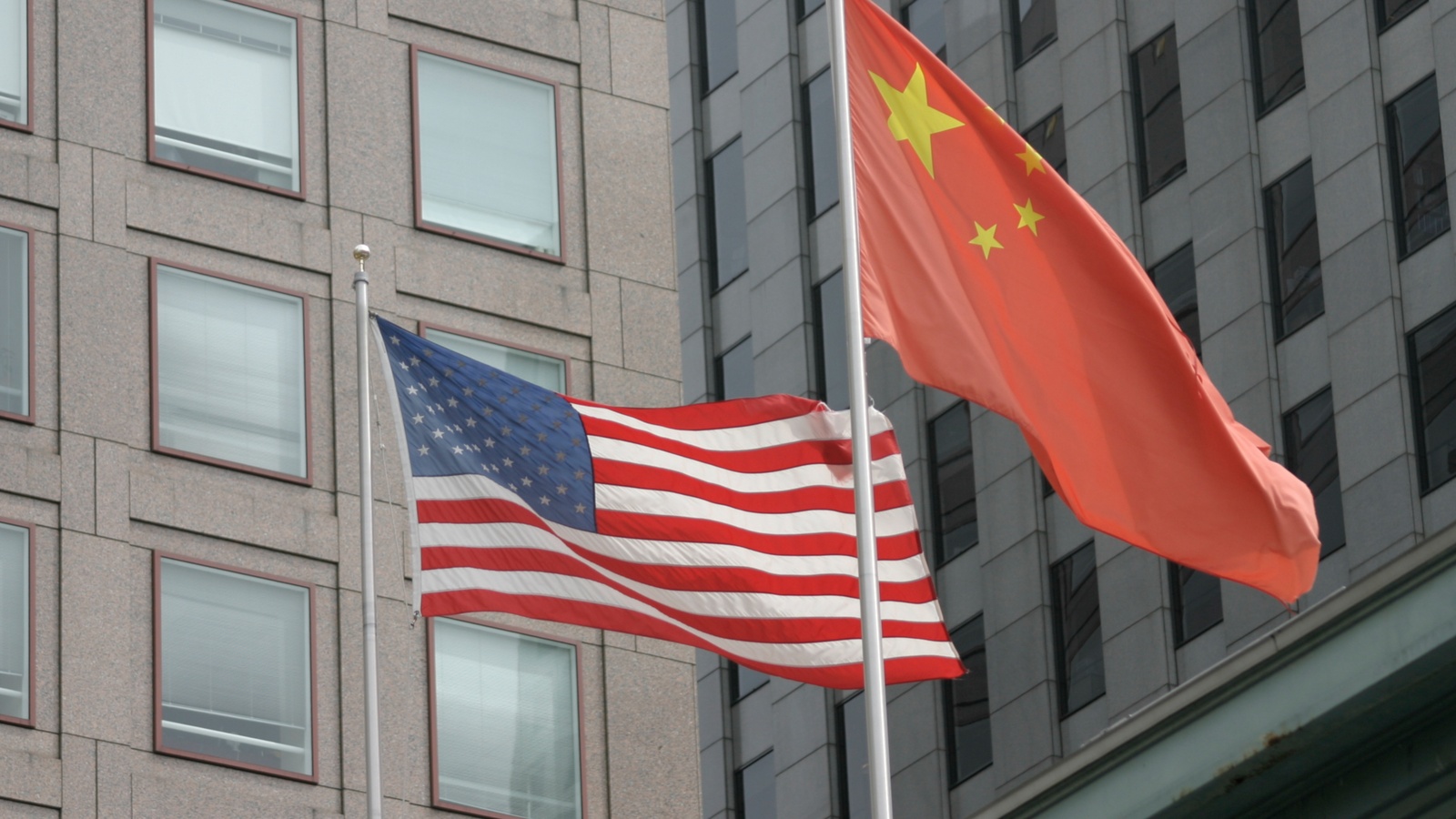
The House of Representatives has made a key move this week to strengthen its oversight of the complex U.S.–China relationship—a development that the NAM supported.
The House has established the Select Committee on the Strategic Competition Between the United States and the Chinese Communist Party, which will aim to “investigate and submit policy recommendations on the status of the Chinese Communist Party’s economic, technological and security progress and its competition with the United States,” according to the bill.
Why it’s important: The NAM has long called for more robust efforts to reset the relationship and hold China accountable for discriminatory economic practices and policies.
- These practices have had a deleterious effect on U.S. manufacturing competitiveness, as NAM Vice President of International Economic Affairs Ken Monahan told Acting Assistant U.S. Trade Representative for Trade Policy and Economics William Shpiece in September.
- “From unfair import and export subsidies and industrial policies to intellectual property theft, manufacturers and workers in the U.S. face an unfair playing field that harms manufacturing in the U.S. and holds back the industry,” Monahan said.
What can be done: The NAM continues to advocate several key actions, which it enumerated last May to the new committee’s predecessor, the House Foreign Affairs Committee’s China Task Force. These include:
- Boosting domestic investment in manufacturing, supply chains and infrastructure here at home;
- Increasing U.S. leadership in writing the rules of trade—globally through leading the modernization of the World Trade Organization and regionally through steps to join the Comprehensive and Progressive Agreement for Trans-Pacific Partnership and new frameworks such as the Indo-Pacific Economic Framework;
- Working at home and with allies abroad to tighten pressure on China to fully meet its trade and economic commitments and halt problematic trade behaviors; and
- Upgrading national security regulatory frameworks such as investment security and export controls through targeted, effective reforms.
The final word: “We have to get China right: the U.S.–China economic relationship has long needed a reset to work for manufacturers large and small across the country grappling with harmful and discriminatory Chinese trade behaviors,” said NAM Senior Director of International Trade and Regulatory Affairs Ryan Ong.
- “Manufacturers welcome robust efforts by Congress and the broader U.S. government to level the playing field for manufacturers and allow them to compete fairly everywhere, including in the U.S., China and around the world.”
Timmons Highlights Manufacturing Priorities in Mexico
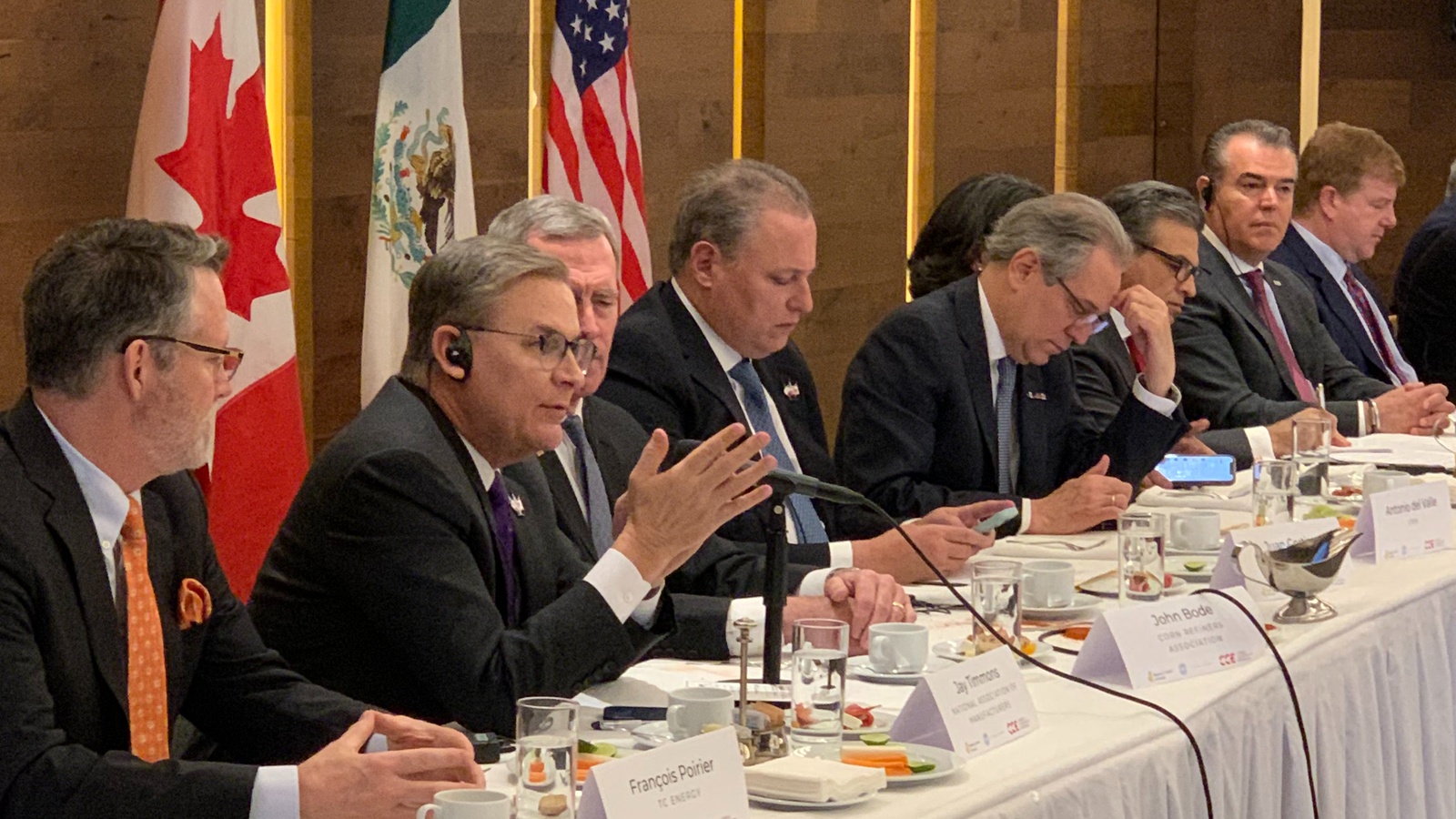
NAM President and CEO Jay Timmons traveled to Mexico City this week to participate in U.S.–Mexico–Canada business delegation meetings at the North American Leaders’ Summit.
The background: The trilateral summit brought together U.S. President Joe Biden, Mexican President Andrés Manuel López Obrador and Canadian Prime Minister Justin Trudeau to advance North American solutions to current challenges facing the region.
- The leaders’ meetings focused on issues including competitiveness, climate, immigration, development, the environment, health and diversity and inclusion.
 The goal: The NAM was focused on conveying the critical importance of full implementation of the United States–Mexico–Canada Agreement to support North American competitiveness, investment and supply chain resiliency. Timmons emphasized the need for an investment climate that is grounded in core principles like transparency and the rule of law.
The goal: The NAM was focused on conveying the critical importance of full implementation of the United States–Mexico–Canada Agreement to support North American competitiveness, investment and supply chain resiliency. Timmons emphasized the need for an investment climate that is grounded in core principles like transparency and the rule of law.
Strengthening alliances: During a conversation with Prime Minister Trudeau, Timmons praised Canada’s partnership in launching USMCA consultations on Mexico’s energy policies and urged continued cooperation.
- “We firmly believe that the USMCA should be a model for how our three nations can capitalize on our close regional economic ties,” said Timmons during a meeting with the prime minister. “That means we have to make sure our governments are upholding their commitments under the agreement.”
Demanding accountability: In a meeting with U.S., Mexican and Canadian economic ministers, Timmons lauded free trade and pressed the nations to live up to the promises made under international agreements.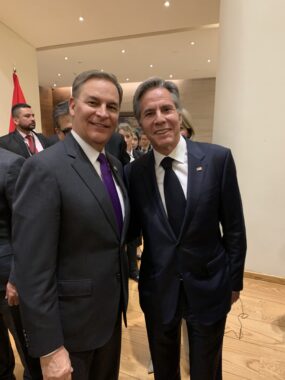
- “The USMCA can only reach its full potential if we all respect the agreements that have been made to bind our countries together,” said Timmons.
Laying out challenges: During the meeting, Timmons urged our North American partners to address a series of issues that have caused concern for manufacturers in the United States. He cited a number of challenges related to Mexico that spurred a lengthy exchange with new Mexican Economy Minister Raquel Buenrostro. These issues included:
- Mexican energy and power policies that have favored the interests of Mexican state-owned entities over U.S. companies;
- Labeling requirements for food and nonalcoholic beverages;
- Lack of competition in Mexico’s telecommunications market;
- Measures that would require overly costly and complicated electronic waybills (the “Carta Porte” issue);
- Mexico’s delayed approvals of biopharmaceuticals and other products; and
- Mexico’s bans on the sale of certain goods including chemicals and genetically modified corn.
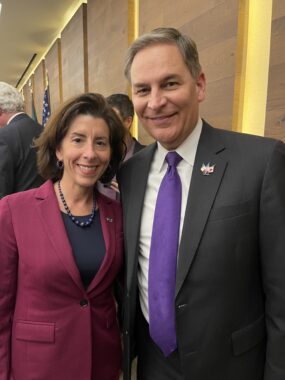 Timmons also highlighted a number of differences with Canada in recent years, including on the regulation of plastics, patent reviews and dairy market access.
Timmons also highlighted a number of differences with Canada in recent years, including on the regulation of plastics, patent reviews and dairy market access.
The big picture: During the trip, Timmons underscored the importance of capitalism and free markets, both in North America and more broadly, according to POLITICO (subscription).
- “The world is changing right now,” said Timmons. “We have democracies versus autocracies, we have freedom versus repression, we have capitalism versus a command economy. And I think our challenge is to really emphasize the power of free markets to lift everyone up and show how it creates opportunities and enhances the quality of life.”
NAM Continues Fight for SEC Proxy Advisory Firm Rule
Washington, D.C. – On Friday, the National Association of Manufacturers filed its opening brief before the U.S. Court of Appeals for the 5th Circuit in NAM v. SEC, appealing a lower court ruling dismissing its challenge to the Securities and Exchange Commission’s unlawful rescission of the 2020 proxy advisory firm rule. NAM Chief Legal Officer Linda Kelly released the following statement on the appeal:
“As we said in district court, the SEC engaged in arbitrary and capricious rulemaking in rescinding this commonsense rule. The Administrative Procedure Act requires federal agencies to explain the basis for significant policy reversals, rely on logical reasoning and allow interested parties a meaningful opportunity to provide comment—standards the SEC clearly failed to meet.
“The NAM Legal Center will continue to fight to preserve the 2020 rule in full and protect manufacturers from the SEC’s dramatic about-face.”
Background:
The NAM has long called for increased oversight of proxy advisory firms. In July 2020, the SEC issued final regulations to enhance transparency and accountability for proxy firms, a move NAM President and CEO Jay Timmons called a “long-sought, major win for the industry and millions of manufacturing workers.” The NAM has been the leader in protecting the 2020 rule in court:
- In October 2020, the NAM filed a motion to intervene in ISS v. SEC (ISS’s attempt to overturn the 2020 rule) in support of the SEC’s authority to regulate proxy firms. That case, with the NAM as an intervenor-defendant, is pending before the U.S. District Court for the District of Columbia.
- In June 2021, the SEC announced that it was suspending enforcement of the 2020 rule; the NAM filed suit against the SEC in October 2021 challenging this unlawful suspension. The U.S. District Court for the Western District of Texas ruled for the NAM in September 2022, overturning the SEC’s suspension of the 2020 rule.
- In November 2021, the SEC proposed to rescind critical portions of the 2020 rule. The SEC finalized the rescission in July 2022—and the NAM quickly filed suit, saying that “the SEC’s arbitrary actions to rescind this commonsense regulation clearly violate its obligations under the Administrative Procedure Act.” In December 2022, the U.S. District Court for the Western District of Texas granted summary judgment in favor of the SEC, failing to engage with the substance of the NAM’s APA claims.
-NAM-
The National Association of Manufacturers is the largest manufacturing association in the United States, representing small and large manufacturers in every industrial sector and in all 50 states. Manufacturing employs more than 12.9 million men and women, contributes $2.77 trillion to the U.S. economy annually and accounts for 55% of private-sector research and development. The NAM is the powerful voice of the manufacturing community and the leading advocate for a policy agenda that helps manufacturers compete in the global economy and create jobs across the United States. For more information about the NAM or to follow us on Twitter and Facebook, please visit www.nam.org.
